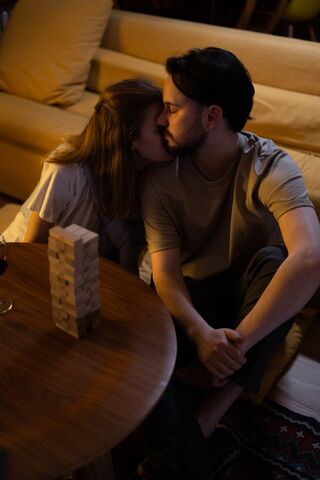Friends
The Secret to Energizing Your Long-Term Relationship
Stuck in a rut? Fan the flames by ramping up the fun.
Posted October 30, 2020 Reviewed by Abigail Fagan

Think of your closest friends. What do you like to do together? Argue over who should vacuum the car? Sit around and Netflix binge? Probably not. Most friends have fun together. One thing that can get lost in marriage and commitment is the kick of early dating. Alice Zhou did a statistical word analysis of all of her text messages between herself and her boyfriend as they progressed from dating to marriage. The most frequent words in their texts while they dated were: “love, fun, soon.” After two years of wedded bliss? “Ok. Home. Yeah.”
Novelty and surprise help people feel connected. Arthur Aron found when couples do a challenging task together, they feel more in love than do couples who do a boring task. He also asked couples to spend 90 minutes a week doing unfamiliar activities like rock climbing or taking Italian lessons. After 10 weeks of the interesting dates, couples felt closer than couples in another group who had stuck to the traditional dinner and a movie.
One survey by Terri Orbuch found that about 42% of spouses feel “in a rut,” and these couples had higher distress levels nine years later than non-rut marriages. She suggests that partners need to “knock each other off balance” in fun ways by introducing new things, like small gifts, taking a role they don’t normally have at home, or spicing up their intimate life.
My wife surprised me once by calling me at work and telling me to meet her at a nice restaurant. There she presented me with tickets to a hilarious theatre production and an overnight bed and breakfast. This was memorable for many reasons, including when I accidentally turned the heater off in the middle of the night, so we froze and had to use the towels as extra blankets. The next morning, we went to a beautiful canyon and watched hawks circle below us in the crisp fall air. Unique memories stick out in the consciousness more than routine ones, and novel events fill a relationship with texture and life.
Even a movie can be therapeutic if used to share and connect. One study divided 174 couples into three groups. One group went to relationship education classes, one did nothing different, and the third set went to see movies. The twist was that the movies were those depicting realistic challenges and joys of intimate relationships (Twilight was not included). After watching, the couples discussed assigned questions to spur conversations about the characters and their good and bad relationship choices. Couples were asked to think about how the movie relationship was "similar to or different from [their] own relationship" in certain areas. The movie watchers were prescribed one movie a week for a month, along with some questions. This combination of film and conversation was just as helpful in reducing divorce as the relationship education classes.
The next time you feel flat in your relationship, skip the Wal-Mart and dinner date. Instead, go to a trampoline park, take a pottery class, or discuss a weepy relationship movie. Act like good friends who are creative and have a fun time building a long-term relationship.
References
Arthur Aron, Christina C. Norman, Elaine N. Aron, Colin McKenna, and Richard E. Heyman, "Couples' Shared Participation in Novel and Arousing Activities and Experienced Relationship Quality," Journal of Personality and Social Psychology 78, no. 2 (2000): 273-284.
Terri Orbuch, 5 Simple Steps to Take Your Marriage From Good to Great (New York: Delacorte Press, 2009), 122.
Ronald D. Rogge, Rebecca J. Cobb, Erika Lawrence, Matthew D. Johnson, and Thomas N. Bradbury, "Is Skills Training Necessary for The Primary Prevention of Marital Distress and Dissolution? A 3-Year Experimental Study of Three Interventions." Journal of Consulting and Clinical Psychology 81, no. 6 (2013): 949-961.


